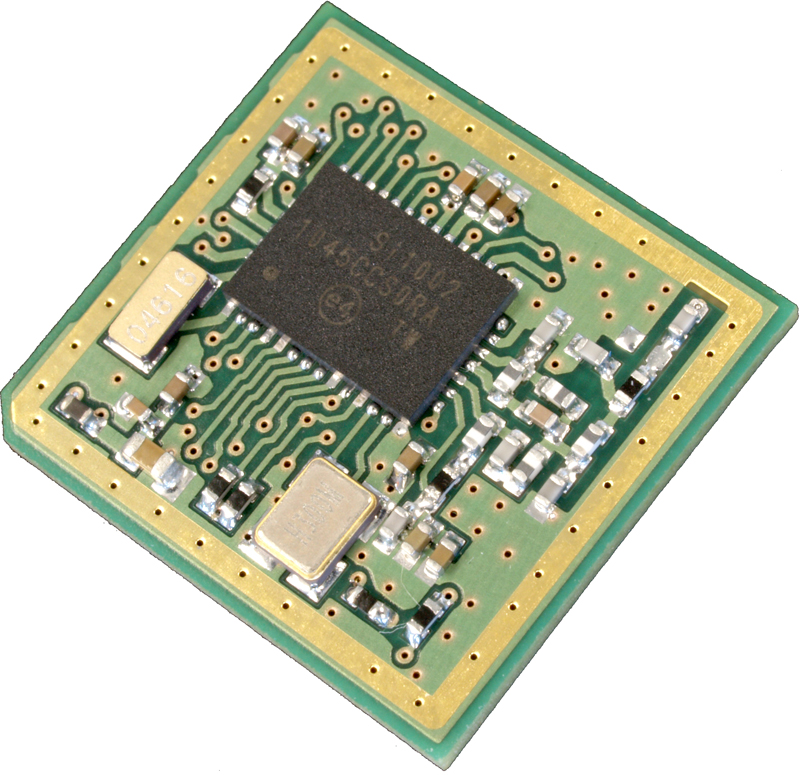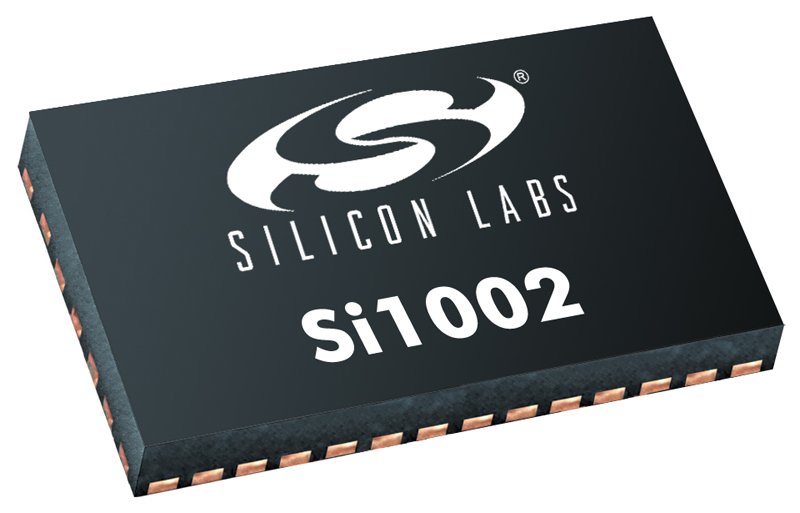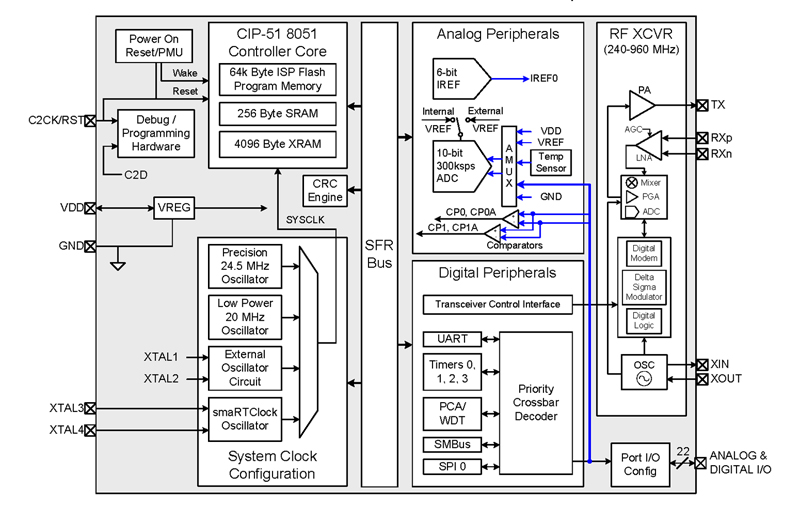Author:
Reported by Cliff Keys, Editorial Director, Editor-in-Chief, Power Systems Design
Date
04/05/2011
I had the pleasure to meet with Hardy Schmidbauer, Product Marketing Manager for wireless products at Silicon Laboratories, who provides strategic and product line marketing support for the company's wireless connectivity products including EZRadio® and EZRadioPRO® devices together with IMST's Dirk Sollbach, who runs Technical Sales for the company's Wireless Solutions. IMST GmbH's iM871A wireless module based on Silicon Labs' Si10xx wireless MCUs streamlines the development of wireless M-Bus smart metering applications which is becoming a very strong business. The companies demonstrated a truly outstanding inter-booth live demo at the Embedded World show in Nuremberg, Germany. Silicon Laboratories Inc. is a recognized leader in high-performance, analog-intensive, mixed-signal ICs, and IMST GmbH, a leading supplier of wireless communications technology, has introduced a turnkey wireless M-Bus solution designed for the booming smart energy market. The comprehensive hardware/software solution combines IMST's industry-leading expertise in the wireless M-Bus market with Silicon Labs' Si10xx wireless microcontroller (MCU) technology to simplify the deployment of ultra-low-power, high-performance, pre-certified wireless M-Bus modules for smart meters. IMST's iM871A wireless M-Bus module offers a cost-effective RF solution for smart metering applications connecting water, heat, electricity and gas meters with data concentrators in the 868 MHz frequency band. Using Silicon Labs' high-performance Si1002 wireless MCU, the iM871A module can reliably achieve a link budget up to 120 dB when operating in R2 mode, resulting in exceptional RF range and communications performance. This link budget is especially critical in addressing wireless communication requirements in challenging environments inside residential and commercial buildings.

The iM871A module has an exceptionally small footprint (17 mm x 19 mm), comes equipped with a serial interface as well as analog and digital inputs and outputs to accommodate interfaces with a customer's system, and is fully compliant with the EN 13757-4 standard. With a standby current of less than 1 microamp, the iM871A is well-suited for applications requiring long battery life such as water and gas meters. The iM871A module solution is compatible with a wide range of wireless M-Bus devices in the field. The module supports all major unidirectional and bidirectional wireless M-Bus modes (S1, S2, T1, T2 and R2) in addition to all tolerance specifications, enabling the highest possible flexibility in metering environments.

"The collaboration between Silicon Labs and IMST has resulted in a best-in-class, sub-GHz wireless M-Bus solution that combines one of the industry's lowest power wireless MCU with the proven performance of IMST's wireless M-Bus software," said Dr. Peter Waldow, CEO of IMST. "The jointly developed wireless module will streamline the development of cost-effective and energy-efficient wireless M-Bus solutions required in today's smart meter market." As a member of Silicon Labs' Wireless Partner Program, IMST has outstanding expertise in providing comprehensive design services and support. IMST's in-house test lab also can cover certification measurements required by manufacturers of end products. "The combination of Silicon Labs' Si10xx wireless MCUs and IMST's wireless M-Bus module provides an ideal sub-GHz wireless communications solution for today's smart energy applications," said Mark Thompson, vice president of Embedded Mixed-Signal products at Silicon Labs. "Using this tightly integrated hardware/software solution, embedded developers can get their wireless M-Bus applications up and running quickly while benefiting from the power-efficient, battery-saving capabilities of our Si10xx MCUs and their exceptional wireless range and performance."

About the Silicon Labs Si1000 Wireless MCU The Si10xx wireless MCU family combines a 25 MHz 8051 core, EZRadioPRO® sub-GHz RF transceiver, 64 kB of flash and a 10-bit ADC - all in a compact 5 mm x 7 mm package. The Si10xx family's integrated power and low-noise amplifiers enable an extended RF range, high bandwidth and ultra-low power consumption. The industry's most power-efficient wireless MCU solution, the Si10xx family provides the lowest active-mode current consumption (160 microamps per MHz). In sleep mode, the wireless MCUs consume only 315 nanoamps using the internal low frequency RTC. In deep-sleep mode, they can operate on as little as 25 nA with full RAM retention. Pricing and Availability The Si10xx MCU-based iM871A wireless M-Bus module is being demonstrated today at Embedded World 2011 in Nuremburg, Germany, Mar. 1-3 at Stand 12-136 and Stand 12-277. Priced at $14 USD in 10,000-unit quantities, the iM871A module is planned to be broadly available in Q2 2011. For more information about the iM871A wireless M-Bus module or to order samples, visit www.wireless-solutions.de. For more information about Silicon Labs' Si10xx wireless MCU family or to purchase samples and development tools, visit www.silabs.com/pr/wirelessmcu. About IMST GmbH IMST GmbH is a leading competence center and professional development house for antennas, high-frequency circuits, wireless modules and communication systems, providing individualized support during every phase of product development, from initial consulting to series production. In the accredited Test Center, IMST provides R&TTE certification and CTIA conformal testing and optimization. IMST is certified according to ISO 9001:2008. For more information, please visit www.imst.com or www.wireless-solutions.de. Silicon Laboratories Inc. Silicon Laboratories is an industry leader in the innovation of high-performance, analog-intensive, mixed-signal ICs. Developed by a world-class engineering team with unsurpassed expertise in mixed-signal design, Silicon Labs' diverse portfolio of patented semiconductor solutions offers customers significant advantages in performance, size and power consumption. For more information about Silicon Labs, please visit www.silabs.com